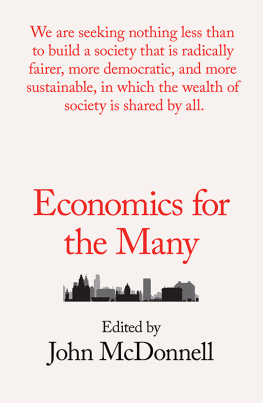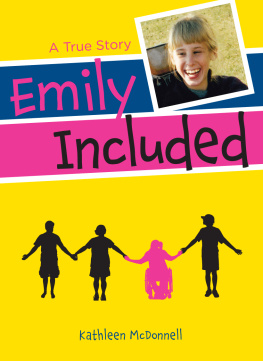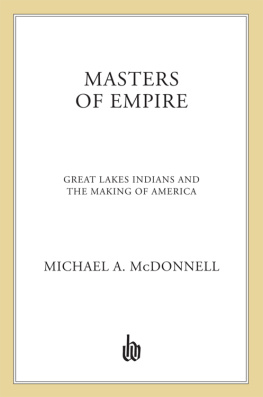John McDonnell - Economics for the Many
Here you can read online John McDonnell - Economics for the Many full text of the book (entire story) in english for free. Download pdf and epub, get meaning, cover and reviews about this ebook. year: 0, publisher: Penguin Random House LLC (Publisher Services), genre: Politics. Description of the work, (preface) as well as reviews are available. Best literature library LitArk.com created for fans of good reading and offers a wide selection of genres:
Romance novel
Science fiction
Adventure
Detective
Science
History
Home and family
Prose
Art
Politics
Computer
Non-fiction
Religion
Business
Children
Humor
Choose a favorite category and find really read worthwhile books. Enjoy immersion in the world of imagination, feel the emotions of the characters or learn something new for yourself, make an fascinating discovery.
- Book:Economics for the Many
- Author:
- Publisher:Penguin Random House LLC (Publisher Services)
- Genre:
- Year:0
- Rating:3 / 5
- Favourites:Add to favourites
- Your mark:
- 60
- 1
- 2
- 3
- 4
- 5
Economics for the Many: summary, description and annotation
We offer to read an annotation, description, summary or preface (depends on what the author of the book "Economics for the Many" wrote himself). If you haven't found the necessary information about the book — write in the comments, we will try to find it.
Economics for the Many — read online for free the complete book (whole text) full work
Below is the text of the book, divided by pages. System saving the place of the last page read, allows you to conveniently read the book "Economics for the Many" online for free, without having to search again every time where you left off. Put a bookmark, and you can go to the page where you finished reading at any time.
Font size:
Interval:
Bookmark:

ECONOMICS FOR THE MANY
THE MANY
Edited with an Introduction by
John McDonnell

First published by Verso 2018
The collection Verso 2018
The contributions The contributors 2018
All rights reserved
The moral rights of the authors have been asserted
1 3 5 7 9 10 8 6 4 2
Verso
UK: 6 Meard Street, London W1F 0EG
US: 20 Jay Street, Suite 1010, Brooklyn, NY 11201
versobooks.com
Verso is the imprint of New Left Books
ISBN-13: 978-1-78873-223-9
ISBN-13: 978-1-78873-225-3 (US EBK)
ISBN-13: 978-1-78873-224-6 (UK EBK)
British Library Cataloguing in Publication Data
A catalogue record for this book is available from the British Library
Library of Congress Cataloging-in-Publication Data
A catalog record for this book is available from the Library of Congress
Typeset in Adobe Garamond Pro by Hewer Text UK Ltd, Edinburgh
Printed in the UK by CPI Group (UK) Ltd, Croydon CR0 4YY
Contents
Introduction
John McDonnell
Democratising Economics in a Post-truth World
Antonia Jennings
Labours Fiscal Credibility Rule in Context
Simon Wren-Lewis
Rising to the Challenge of Tax Avoidance
Prem Sikka
To Secure a Future, Britain Needs a Green New Deal
Ann Pettifor
Fair, Open and Progressive: The roots and Reasons behind Labours Global Trade Policy
Barry Gardiner
De-financialising the UK Econo my: The Importance of Public Banks
Costas Lapavitsas
Better Models of Business Ownership
Rob Calvert Jump
Beyond the Divide: Why Devolution Is Needed for National Prosperity
Grace Blakeley and Luke Raikes
Democratic Ownership in the New Economy
Joe Guinan and Thomas M. Hanna
A New Urban Economic System: The UK and the US
Matthew Brown, Ted Howard, Matthew Jackson and Neil McInroy
Debt Dependence and the Financialisation of Everyday Life
Johnna Montgomerie
Platform Monopolies and the Political Economy of AI
Nick Srnicek
A New Deal for Data
Francesca Bria
Rethinking Economics for a New Economy
J. Christopher Proctor
Public Investment in Social Infrastructure for a Caring, Sustainable and Productive Economy
zlem Onaran
Rentier Capitalism and the Precariat: The Case for a Commons Fund
Guy Standing
The election of Jeremy Corbyn as Labour leader in September 2015 was the opening act in a period of political change and transformation in Britain. Thousands of campaigners and millions of voters, inspired by his message of hope, delivered the biggest rise in Labours vote share since 1945 in the general election less than two years later. Ten years after the Great Financial Crisis, the prospect of a Labour government elected on a platform to transform society is now very real and so, too, has been the extraordinary flourishing of new ideas on the economy to replace those that have so obviously failed.
The Chancellor of the Exchequer, Philip Hammond, said in 2016, We have a problem and its not just a British problem, its a developed-world problem in keeping our populations engaged and supportive of our market capitalism, our economic model. Nobody should be surprised. Real wages in the UK today are still lower than in 2010: an unprecedented period of failure.
The crash of 2008 laid bare the failures of mainstream economic policy, otherwise known as neoliberalism. Neoliberalism is a set of policies and beliefs about the economy that have dominated government thinking in Britain (as across the world) since the crisis of the late 1970s. These rules hold it that markets are the best possible means to organise an economy, that wealth would automatically trickle down from the top, and that impediments to corporate power like regulation and trade unions should be reduced to irrelevance, if not actually banned.
But since the Global Financial Crisis of 20078, we have been approaching the end of the road for this economic model. Growth in the economy has never fully recovered from the crash, and the growth which there has been has not been shared. The UK in particular is the only advanced economy where wages have fallen when the economy has grown.
Meanwhile, the system of in-work benefits which went some way to compensate for low earnings has been slashed, and austerity has cut to the bone the public services we all rely on.
The human costs of this economic failure are intolerable. As billions of pounds have been handed out in tax giveaways to corporations and the very richest in society, cuts have eroded the basic fabric of our society and the quality of the lives we lead. Our schools, hospitals and social care services have been deprived of the funding they need to adequately support us in our daily lives. Good-quality, secure and affordable housing, which should be a staple of any healthy society, is slipping out of the reach of an entire generation.
While the profits of big business and executive pay continue to soar, the proceeds of that wealth are not being shared by those who create it. Despite working some of the longest hours in Europe, for too many people in this country lower wages in often insecure jobs are preventing them from enjoying the basics in life, be it time spent with the family, an annual holiday away or simply a meal out.
Shamefully, it is the most vulnerable in our society that have paid the heaviest price for the economic vandalism of recent years. According to a UN committee, the UKs austerity programme has led to the grave and systematic violations of disabled peoples rights. It demeans our society that, in the sixth richest country on the planet, record numbers of vulnerable children are pushed into care; womens refuges, starved of funding, are forced to turn away victims fleeing domestic violence; and record numbers are sleeping rough on our streets.
Faced with the economic and social decay of neoliberalism, our core economic objective must be to create a prosperous economy that provides the richest quality of life possible for all our people and is at the same time environmentally sustainable.
The essays collected here represent just one small part of the ferment of ideas, which has flourished since the crash, around which that alternative will be built. These are the ideas into which Corbynism has sunk its intellectual roots. I hope that it will act as a spur to further discussion, debate and experimentation as the social movement that we must become develops its own policies and strategies. Since Jeremy asked me to become shadow chancellor, Ive tried to help raise the level of the economic debate in Britain through the New Economics events around the country and the annual State of the Economy conferences.
The truth is that we know the next Labour government will end austerity and begin to repair the damage it has inflicted on our country: from the crumbling NHS to the obscenity of street homelessness. But we cant build the best public services in the world on decrepit foundations, and the truth is that our economy is fundamentally broken. Even before the Tories botched Brexit fatally undermined business confidence, investment by businesses was already among the lowest in the developed world. Productivity, the motor of growth in incomes, is stagnant.
For decades, successive governments have told us that free markets were always best and private wealth should be left untouched. They rolled back the frontiers of the state and were seriously relaxed about people becoming filthy rich. In theory, this was supposed to create opportunities for all, as wealth trickled down from the top. Yet wealth today piles up in a few hands and insecure work is at record levels. Meanwhile, the environmental damage our economy is inflicting is only too apparent in the rising annual deaths from air pollution.
Font size:
Interval:
Bookmark:
Similar books «Economics for the Many»
Look at similar books to Economics for the Many. We have selected literature similar in name and meaning in the hope of providing readers with more options to find new, interesting, not yet read works.
Discussion, reviews of the book Economics for the Many and just readers' own opinions. Leave your comments, write what you think about the work, its meaning or the main characters. Specify what exactly you liked and what you didn't like, and why you think so.













